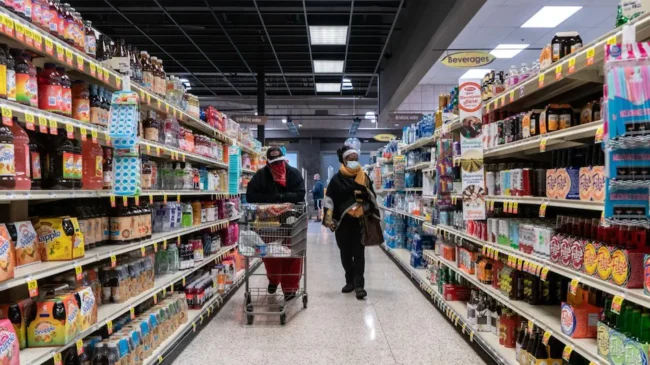In December, UK inflation remained unchanged at above 10% amid indications that consumers continued to spend during the holiday season despite rising cost of living pressures.
According to the Office of National Statistics, the consumer price index increased 0.4% month over month. Which was in line with economists’ predictions and reduced the inflation rate from 10.7% to 10.5% annually from 10.7%
The numbers may have been inflated by a decrease in fuel prices. But there were indications that underlying inflation pressures were still very high. After increasing by 0.3% in Nov,
The core CPI—which excludes prices for fuel and food—accelerated this month, climbing by 0.5%. As a result, annual core inflation remained at 6.3%, which is higher than the Bank of England’s 2% objective by more than 3 times. (UK CPI)
The figures follow a string of reports from the United Kingdom’s supermarkets indicating significant increases in sales during the crucial Christmas season, with grocery sales in particularly up more than 12% year on year.
Food prices continue to rise
Prices for food & non alcoholic beverages increased by 16.9% in the year ending in Dec, increased from 16.5% in Nov, according to the ONS. That number has increased for 17 months in a row, and it is presently at its highest level since 1977.
Given that a larger amount of their spending is allocated to food, the country’s poorest in society are feeling the pinch of rising costs the most as a result of food inflation. Which is outpacing the overall index by a wide margin.
According to Resolution Foundation experts. The inflation rate for poor 10% of families was 11.9%, comparing to 9.2% for the wealthiest 10%.
However, the energy sector has continued to make the largest contribution to inflation over the past 12 months. With household fuel costs surging ever since Russia’s invasion of Ukraine caused a natural gas crisis in Europe.
Although there has been a prolonged period of unusually warm weather, natural gas prices have dropped significantly in recent weeks. According to European energy officials, there is no longer a chance of this winter’s severe shortages.
The statistics make it more difficult for Bank of England to slow the speed of its interest rate hikes as many had predicted, especially when combined with Tuesday’s strong labour market data. Which had shown wages rising at their faster rate over the last 20 years (excluding pandemic).
